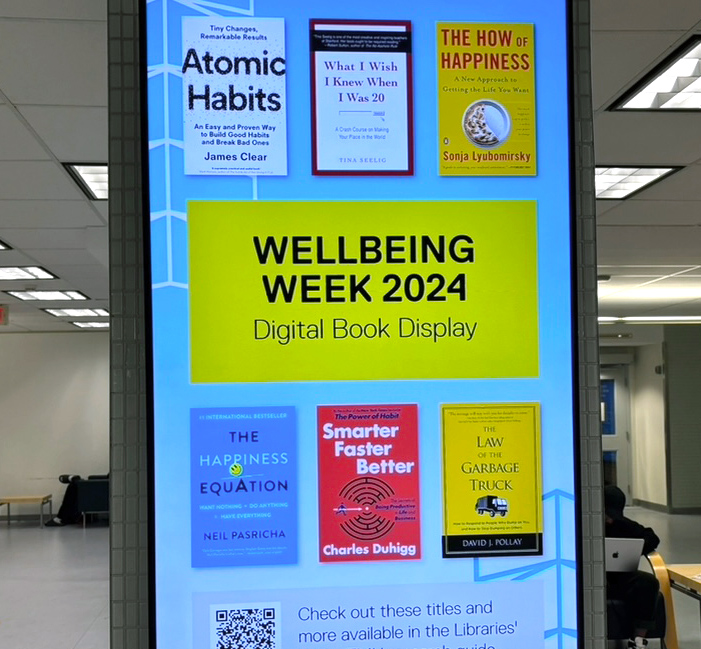
to the ThriveTMU book guide (OTR/Kiera Osborne).
“It’s not a one size fits all,” said Dr. Diana Brecher, clinical psychologist and adjunct faculty at TMU. Brecher recommended the titles that appear in the ThriveTMU collection currently being exhibited in the Wellbeing Week Digital Book Display.
As part of this week’s Wellbeing Week at TMU, the library showcased a selection of mental health-based books including self-help books – a genre known to polarize academics and readers.
“There’s no quick fix to anything, especially your mental health,” said Impreet Bhandohal about TMU library’s Wellbeing Week showcase. Bhandohal is co-president of TMU’s Students for Mental Awareness, Support, and Health.
Though the potential of self-help books to positively influence readers has been documented in several research articles, their effect is often determined by the reader and their personal needs.
Listen to full story here:
“It depends on the person and their stage of life and what they’re struggling with,” Brecher said.
“For some people, at a certain stage of your life, you might just be totally open to ‘just give me all the answers, take me through the processes’.”
She said that for others, who want someone there to listen and talk to, self-help wouldn’t be appropriate.
Existing research has been limited by small sample sizes, but studies have shown promising results for self-help books in benefiting students experiencing stress and social anxiety.
On the other hand, a 2024 BMC Psychiatry study showed limited effectiveness of self-help for treating depression in comparison to treatment supported by a therapist.
Bhandohal said she would caution her peers against seeing self-help as a quick fix for their mental health.
“Reading a book and doing the work that they’re telling you to do by yourself, versus actually having somebody there that you see on a weekly basis, or bi weekly, monthly basis and going through your emotions with them is very different,” she said.
Bhandohal read self-help books alongside therapy during COVID years with the hope that books might “fast track” her progress.
She pointed out that many books on the market are under researched and may not have helpful advice. For those that are well-researched, she said that they could be useful, but not on their own.
“They might be good reads but one does need to keep in mind that they are not as effective as they are portrayed to be,” said Bhandohal.
Reporter for On The Record.
This article may have been created with the use of AI tools such as Google Docs, Grammarly, and/or Otter.ai for transcription.
